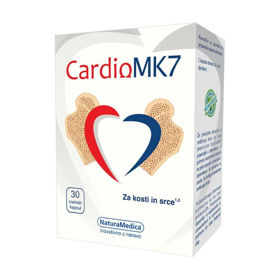Customer question:
How deadly is a heart attack? Anonymous customer's question
Pharmacist's answer:
A heart attack, also known as a heart attack, can be a severe and, in some cases, life-threatening event. The severity of a heart attack depends on several factors, including the size of the affected area of the heart muscle, the speed of treatment, the individual's medical condition, and the speed and effectiveness of providing medical care.
If a larger area of the heart muscle is affected, a heart attack is usually more severe. If the interruption of the blood supply is quickly restored (e.g., by rapid treatment), this reduces damage to the heart muscle and improves the outcome. Quick action is critical. Early treatment with thrombolysis or angioplasty can significantly improve the outcome of a heart attack. The presence of other health problems, such as diabetes, high blood pressure, or existing heart disease, can also affect the severity of a heart attack. The age of the individual can also affect the outcome. In older people, the consequences of a heart attack can often be more serious.
Although heart attacks can be hazardous and deadly, there is a good chance of survival and recovery with timely medical attention and proper treatment. People experiencing symptoms of a heart attack must call 911 immediately, as quick action can save lives and reduce damage to the heart muscle.
Who is most often affected by a heart attack?
A heart attack (heart attack) can affect people of all ages, genders, and races, but certain risk factors increase the likelihood of it occurring in certain groups of people.
Some of these factors are:
- Age: the risk of heart attack increases with age. Older individuals are more prone to heart problems.
- Sex: Men tend to have a higher risk of heart attack than women. However, the risk increases in women after menopause.
- Family history: if close relatives have a history of heart disease, the risk for the following increases.
- Obesity: Overweight and obesity are risk factors for heart disease, including heart attack.
- Smoking: smoking tobacco is a significant risk factor for heart disease, as it increases the likelihood of atherosclerosis (accumulation of fat and cholesterol in the arteries).
- High blood pressure: High blood pressure often increases the strain on the heart and arteries and contributes to more severe heart problems.
- High cholesterol: High cholesterol levels in the blood can contribute to the formation of atherosclerosis, leading to a heart attack.
- Diabetes: people with diabetes have an increased risk of heart disease, including heart attack.
- Physical inactivity: lack of physical activity can be a risk factor for heart disease.
- Stress: Prolonged stress and anxiety can affect the heart and increase the risk of a heart attack.
It is important to emphasize that heart attacks can occur even in people who have no apparent risk factors. Therefore, it is crucial to monitor your health, visit your doctor regularly, monitor your risk factors, and practice a healthy lifestyle to reduce the likelihood of heart problems.
Interesting reading: Signs of a heart attack
Interesting reading: 5 signs of a heart attack













